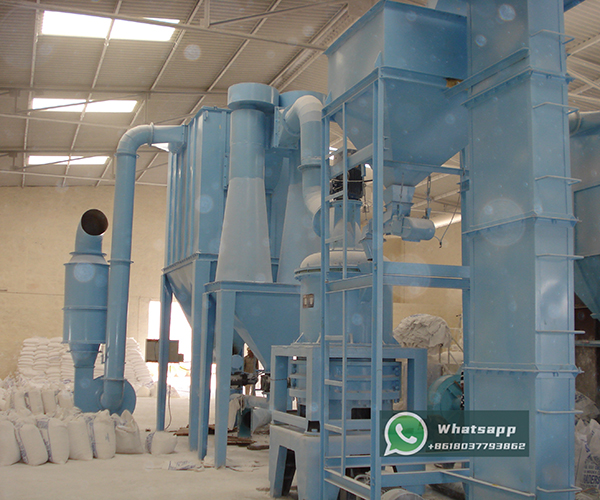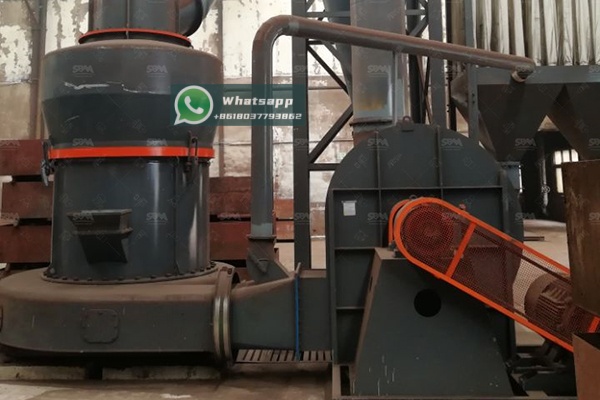The automotive industry’s relentless pursuit of lighter, stronger, and more cost-effective materials has positioned plastic composites at the forefront of innovation. A critical component in enhancing the performance of these polymers is the use of functional mineral fillers, with ultrafine talc standing out as a premier choice. The process of transforming raw talc ore into this high-value, ultrafine powder is a precise science, demanding advanced grinding technology to meet the stringent requirements of automotive applications.
Talc, a hydrous magnesium silicate, is renowned for its ability to significantly improve the properties of polypropylene (PP) and other thermoplastics commonly used in automotive parts. When ground to an ultrafine consistency, talc acts as a powerful reinforcing filler, offering a unique combination of benefits:
The efficacy of talc is directly tied to its particle size distribution and surface area. Ultrafine grinding (typically to a fineness of D97 < 10µm or even sub-micron levels) maximizes the aspect ratio of the talc platelets and their dispersion within the polymer matrix, unlocking the full potential of these performance enhancements.

Producing talc powder suitable for high-end automotive applications is not without its challenges. The goal is to achieve a fine and narrow particle size distribution without damaging the lamellar (plate-like) structure of the talc, which is essential for its reinforcing properties. Key challenges include:
Addressing these challenges requires robust, efficient, and precise grinding technology. Shanghai Zenith Machinery Co., Ltd., a leading manufacturer of industrial grinding equipment, offers solutions specifically engineered for the production of ultrafine mineral powders like talc.
For the automotive plastics industry, where consistency and quality are paramount, two of our flagship products are particularly well-suited:
The XZM Ultrafine Grinding Mill is a high-efficiency machine designed for producing fine and ultrafine powders from soft to medium-hard materials. Its design is ideal for talc, as it utilizes a combination of attrition and impact forces that are effective yet gentle enough to preserve the lamellar structure. The mill features an integral high-precision classifier that ensures a sharp particle cut and a consistent top size, which is critical for achieving uniform dispersion in plastics.
| Model | Working diameter (mm) | Max feed size (mm) | Final size (mesh) | Output (kg/h) | Main motor power (kW) |
|---|---|---|---|---|---|
| XZM221 | Φ800 | ≤20 | 325-2500 | 500-4500 | 75 |
| XZM268 | Φ1680 | ≤20 | 325-2500 | 5000-25000 | 315 |
The XZM mill’s ability to produce talc powder in the range of 325 to 2500 mesh (approximately 45 to 5 microns) makes it a perfect fit for a wide spectrum of automotive plastic formulations.

For producers aiming for the highest levels of fineness and production capacity, the LUM Ultrafine Vertical Mill represents the pinnacle of grinding technology. It integrates grinding, drying, classifying, and conveying into a single, compact unit. Its unique roller and grinding plate design, coupled with an advanced built-in classifier, allows for extremely precise control over the final product’s particle size distribution.
| Model | Main machine power (kW) | Capacity (t/h) | Size distribution D97 (μm) |
|---|---|---|---|
| LUM1525 | 220-250 | 1.6-11.5 | 5-30 |
| LUM1632 | 280-315 | 2.0-13.5 | 5-30 |
| LUM1836 | 355-400 | 2.3-15 | 5-30 |
The LUM mill is exceptionally capable of producing talc with a D97 as fine as 5 microns (2500 mesh) and beyond. Its energy-efficient operation and low wear make it an economically attractive solution for high-volume production lines supplying the global automotive market. The intelligent control system ensures stable operation and consistent product quality, batch after batch.
The demand for high-performance, lightweight vehicles continues to drive innovation in material science. Ultrafine talc remains a key enabler for advanced automotive plastics, contributing to weight reduction, safety, and efficiency. The ability to reliably produce this critical raw material hinges on sophisticated grinding technology.
Shanghai Zenith Machinery Co., Ltd. provides the industry-leading equipment necessary to meet these demanding specifications. Our XZM Ultrafine Grinding Mill and LUM Ultrafine Vertical Mill offer tailored solutions for every production need, from high-quality standard grades to the most demanding ultrafine applications. By partnering with Zenith, talc producers and compounders can ensure they are equipped to deliver the superior materials that the future of the automotive industry requires.
